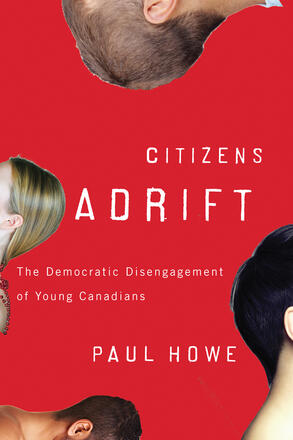
Citizens Adrift
The Democratic Disengagement of Young Canadians
Citizens Adrift reveals – and seeks to remedy – the political disengagement of young Canadians and explains the effect of this malaise on the future of Canadian democracy.
La description
Many political observers, struck by low turnout rates among young voters, are pessimistic about the future of democracy in Canada and other Western nations. Citizens in general are disengaged from politics, and young people in particular are said to be adrift in a sea of apathy. Building on these observations, Paul Howe examines patterns of participation and engagement from both the past and present, concluding that young Canadians are, in fact, increasingly detached from the political and civic life of the country. Two key trends underlie this development: waning political knowledge and attentiveness and generational changes in the norms and values that sustain social integration. As Citizens Adrift shows, putting young people back on the path towards engaged citizenship requires a holistic approach, one which acknowledges that democratic engagement extends beyond the realm of formal politics.
Reviews
In his recent book, Citizens Adrift: The Democratic Disengagement of Young Canadians, Paul Howe has managed to do what others have not. He presents a comprehensive and balanced examination of the political (dis)engagement of young Canadians. Howe has avoided the trap of simplistic analyses and conclusions and, instead, offers readers a thorough and considered look at the oft-cited low levels of political interest and participation among Canadian youth. He employs statistical data from a wide variety of sources (including those from Canada, the United States and numerous European countries) and draws upon theories in political science, sociology and psychology in order to approach the subject in a unique way.
- Brandi Bell
In Citizens Adrift, Paul Howe explores a problem that every political scientist in Canada has to be thinking about: Why are younger people less interested in politics than their elders? Howe comes to the topic with an open mind, an infectious enthusiasm, and an impressive toolkit. Drawing on the research of others, generating new data of his own, and comparing Canadian results with similar countries, he examines the issue of disengagement from a number of fascinating angles. His diagnosis is at once wise, persuasive, and troubling; his prescriptions are realistic and achievable. Citizens Adrift is a model of political science that deserves a place on every scholar’s reference table not just because it is accessible and intelligent, but because it will inform reflection and discussion both in class and, one hopes, on the street.
- Canadian Political Science Association Prize Jury